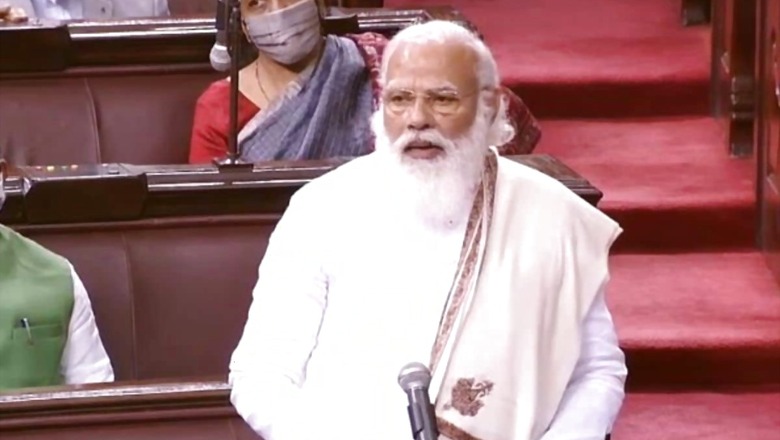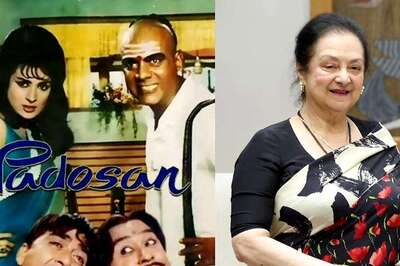
views
The following are bits from a very instructive 1991 debate on the floor of the Lok Sabha between CPI(M)’s Nirmal Kanti Chatterjee and then Prime Minister PV Narasimha Rao.
NKC: “… if there are one lakh washing machines in the country, that means we are depriving approximately one lakh partial employment in the country. It is not only directly, indirectly also by producing this kind of goods, employment is affected. Similarly, one can take the example of dust cleaners..”
PVNR (a little later): “… Coming to technology, Nirmal Babu has told us something about appropriate technology. If you have a washing machine, how many people are you throwing out of employment? The only thing is, if you have a lakh of washing machines being made, to how many are you giving employment, on the other side?…”
NKC: “…Those resources which are utilised for producing washing machine, could be utilised for other purposes.”
PVNR: “That is the point. If you take that as the criterion, then you will remain a country of maid-servants only.”
Seen through modern eyes, this exchange may seem embarrassing for one side. But one must realise that in 1991, people thought that this was a serious policy question and not funny at all.
On Monday, in his speech to the Rajya Sabha, Prime Minister Narendra Modi sought to frame his difficulties with the new agricultural laws in terms of the struggles faced by every reformer before him. How to address insecurities of people about something new. And how to deal with an opposition that refuses to have vision.
The Prime Minister’s effort appears to consist of four parts, each with its own separate function. First, he explained how the usual means of farmer welfare, such as debt relief or crop insurance, do little or nothing for small and marginal farmers. The number of people with small holdings has continuously been increasing. They now make up around 68% of Indian farmers. Unless there is vast, sweeping reform in the agriculture sector, it becomes almost impossible to raise their incomes.
In doing so, the Prime Minister quoted extensively the views of venerable farmer leaders, starting with HD Deve Gowda and going back to the Late Charan Singh. He also made a reference to an important episode where the historical record needs to be fixed, giving Lal Bahadur Shastri proper credit for his role in ushering the green revolution.
Indeed, in the mid-1960s, when Shastri sought to improve the productivity of Indian farmers, he wanted to import high-yield varieties of crops and special fertilisers from abroad. His own cabinet colleagues, the Left parties and the public at large had been deeply uncomfortable about the idea. In fact, it was a struggle for him to get even the foreign exchange needed for these transactions. As is their habit, the Left parties labelled him an agent of American imperialism.
The echoes of this rhetoric in the so-called “farmers’ movement” on the borders of Delhi cannot be missed. But Shastri was right. The green revolution ended India’s food crisis, including the need for food aid from America (the so called PL-480 wheat). And Punjab benefited the most.
The second part was to corner the opposition parties. For this, the Prime Minister appeared to take two different approaches. The first was to repeat the fact that these reforms had been on the agenda of every party. This is well-documented and a few quotes from Dr Manmohan Singh would suffice. For a long time now, political parties have known that such reforms are in the interest of the farmer and the nation. They have implemented versions of these reforms whenever possible, including in opposition-ruled states. To oppose these reforms simply for the sake of opposing makes no sense.
The second strategy was more subtle. The Prime Minister praised the contributions of Lal Bahadur Shastri, Chaudhary Charan Singh and Deve Gowda. By not mentioning the Nehru-Gandhis, he sought to cut off and isolate the Congress party from the rest of the opposition. The most clever of all was when he referred to Subhas Chandra Bose as the first Prime Minister of India, head of the Azad Hind government.
The third part consisted of reaching out to farmers directly and soothing their concerns. The case of dairy farming, which unlike grain farming is relatively free of controls, was the case in point. This makes for an easily relatable example for farmers and most of the rural population. India has the most productive dairy industry in the world as well as a robust chain of supply and value addition. The milk sells; the animal stays with the farmer. Why would anyone fear losing their land because of these new agricultural laws?
And then, the big assurance. “MSP is here to stay. Nobody can take it away.”
The fourth and final part was to warn the nation against the antics of professional protesters, who he called “andolanjeevis”. Unlike farmers who help us put food on our table, these people contribute nothing. They bring nothing to the table. They only get a cut, every time we get chaos and disruption. This time, they are playing with an even bigger fire than usual. Punjab has seen some difficult episodes in the 1980s. It is very important that we do not open up old wounds.
At the moment, it seems unlikely that the PM’s speech will make the opposition back away from this issue. But the clear message from the Modi government is that the reforms will go through, sooner or later. In fact, this will be followed up with other far-reaching reforms in banking, insurance, electricity and infrastructure.
A number of people have drawn parallels between the current situation and the 2011 Lokpal movement. This is tempting but rather misguided. For one, people of a certain group tend to overestimate the role of the 2011 movement in deciding the fate of UPA2. But more importantly, the 2011 movement was against corruption. It was an issue that everyone could relate to. A decade from now, even a hundred years from now, people will agree that corruption was bad.
About the farm laws, not so much. Good sense is likely to prevail, eventually. Possibly in just five years or less, everyone will agree that agricultural reform was a positive thing. It’s how the story of independent India has always unfolded. Economic reform has always done good for our nation. As a matter of fact, the critics of these laws risk being judged very harshly by history. They must remember that their words on the floor of Parliament are going into the official record. And some day, just like those communists militating against washing machines, they might get laughed at.
Read all the Latest News, Breaking News and Coronavirus News here


















Comments
0 comment